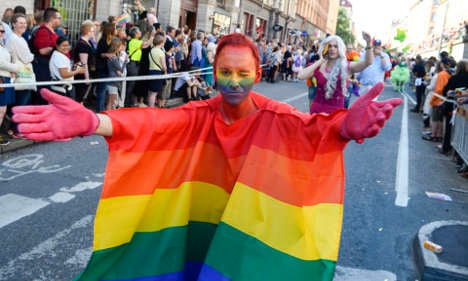The full ILGA rankings
1. Malta
2. Belgium
3. United Kingdom
4. Denmark
5. Spain
6. Portugal
7. Finland
8. France
9. Croatia
10. Netherlands
11. Norway
12. Sweden
13. Austria
14. Iceland
15. Greece
16. Germany
17. Ireland
18. Hungary
19. Luxembourg
20. Montenegro
21. Estonia
22. Albania
23. Switzerland
24. Andorra
25. Serbia
26. Cyprus
27. Slovenia
28. Czech Republic
29. Kosovo*
30. Georgia
31. Bosnia & Herzegovina
32. Slovakia
33. Bulgaria
34. Romania
35. Italy
36. FYR Macedonia
37. Poland
38. Liechtenstein
39. Lithuania
40. Latvia
41. San Marino
42. Moldova
43. Belarus
44. Ukraine
45. Monaco
46. Turkey
47. Armenia
48. Russia
49. Azerbaijan


 Please whitelist us to continue reading.
Please whitelist us to continue reading.